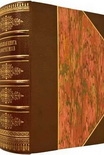Victoria Sees It, Carrie Jenkins [best classic books TXT] 📗

- Author: Carrie Jenkins
Book online «Victoria Sees It, Carrie Jenkins [best classic books TXT] 📗». Author Carrie Jenkins
As I entered, Gin introduced me to four people sitting around the fire, but I was preoccupied with the room and I wasn’t ready yet to focus on the people. I didn’t catch what anyone was called, and spent the rest of the evening using every trick I knew to avoid referring to anyone other than Gin by name, but, perhaps kindly, nobody called me on it. They all seemed about Gin’s age, and quite friendly.
“Get yourself a drink,” said one of the men, gesturing towards the table. On the table there were several bottles of wine, a little stack of plastic cups, and an open bag of Jelly Babies. I added to this collection the moderately priced bottle on which I’d spent the last of my money for the week, and noticed that both a white wine and a red were already open. I poured a cup of the red (a mistake—reds are digestively trickier, but I wasn’t thinking) and gratefully grabbed a handful of Jelly Babies, figuring that between them and the wine that would be about as many calories as a sandwich and I wasn’t that hungry anyway.
The ritual of my initiation into The Eleven happened in that room, around that fire, with those five people. The man who’d invited me to get a drink read out the text that Gin had described, and I agreed with tipsy faux-solemnity to all of its terms and conditions. I recollect that there was, indeed, a mention of being cast into a pit of flame. It all sounded like nineteenth-century adolescent tomfoolery. Harmless.
—
By the end of that summer, it happened that I’d temporarily been appointed secretary to The Eleven. This was because several of the other members were away for the vacation, and nobody else was left who had rooms in College to store the Books. The Books were records of meetings dating back to the origins of the club, with a separate volume containing the signatures of all its members. I’d written my own name at the very end of the list during my initiation ceremony, and now I sat with this strange ledger in my room in Hermes Court, thumbing through its ancient pages. I found the signature of Bertrand Russell, and that of Wittgenstein, who had terrible handwriting which—to my mind—matched his awful messy thinking. I found Anthony Blunt and Guy Burgess, John Maynard Keynes, Lytton Strachey, E. M. Forster, Alfred Tennyson. And, to my surprise, Dr. Humberton.
“Oh, yes!” Gin had said, when I asked about him. “Ron is the best fun. He might come back for the Society annual dinner. You know, in December?”
It had taken me a full minute to figure out who Ron must be; I never dreamed of calling any of my lecturers by their first names. The fact that they had first names at all was entirely off my radar. Gin never called the other faculty by their first names either. Something felt strange about the way she did it with Humberton, but I didn’t feel like I could ask more.
I very much wanted Humberton to come back for the dinner in December, but I somehow knew that he would not. I accepted this as inevitable. There’s a kind of passivity that sets in when you’re on a predetermined course: it doesn’t matter what direction you’re going, or why. Humans have this incredible capacity to fashion themselves a “normal” from whatever life hands them. And if it unravels they just start over, like there’s a skein of wool they’re constantly knitting and re-knitting into variations on the same garment, the same comfort blanket. Normal.
In this way, I became desensitized to holding the Books in my hands. These historical diamonds in rough handwriting, a treasure trove of poorly kept Cambridge secrets. I stashed them in the middle drawer of my room’s little wooden desk, without so much as a locked box for protection.
My own notebooks about Deb’s disappearance had grown into a disordered pile that now took up most of the desktop. This was starting to make things difficult. It was getting harder to keep track of my other work on top of the search for Deb, and sometimes I needed to write all through the night if I had an essay deadline. But the library closed at 1 a.m. So I ended up piling the books I needed for essays precariously on top of my notebooks, and then pushing piles to one side when it was time to write up my own six or seven pages of thoughts. We were permitted to submit typed-up work, but it wasn’t particularly encouraged, and I rarely bothered. The computer room was in the opposite corner of Great Court, and often all the machines were in use. To clear myself a writing space I simply shoved, my forearm flat to the surface like a penny-pusher arcade machine, only in this case I hoped that nothing would fall off. Obeying the same gravity-defying physics that also governs those infuriating contraptions, stuff rarely did.
In fact there were surprisingly few catastrophes involving that desk, and only one worth mentioning. I was holding one of the oldest and most precious of the Books in my left hand when I suddenly realized the rollie I was lifting to my lips with my right had developed a great flying buttress of ash. This structure promptly disintegrated and buried itself deep into the Book’s central fold, close to the ancient leather of its spine. Horrified, I set the cigarette down atop a turret of library books, its still-lit tip





Comments (0)